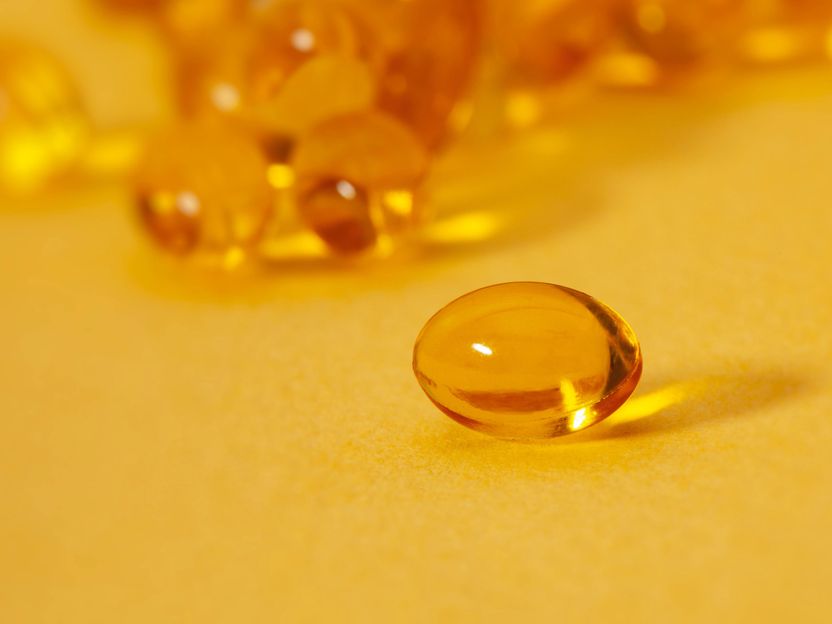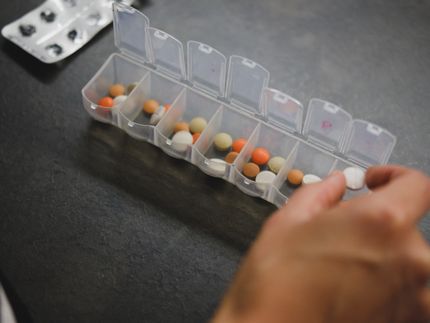Covid-19 disease: Vitamin D supply may be an indicator of mortality risk
Vitamin D can positively influence the course of disease
Advertisement
Diabetes, cardiovascular diseases, severe overweight and high blood pressure - with these underlying diseases, the risk of a severe course increases when a Covid-19 infection is added. All these diseases have one thing in common: they are often accompanied by low vitamin D levels. The same applies to older people, for example, who also frequently suffer from vitamin D deficiency and who are among the risk groups. Prof. Dr. Hans-Konrad Biesalski from the University of Hohenheim in Stuttgart points out this connection. The nutritional physician has evaluated 30 studies - and identified a vitamin D deficit as a potential indicator of the severity and mortality of Covid-19 disease. The vitamin D supply might also play a role in the course of the disease because this vitamin regulates the immune system and inflammatory processes in the body. The expert therefore recommends that in the case of covid-19 disease, it is essential to keep an eye on vitamin D levels.
Vitamin D is in short supply in many people around the world - and in the case of covid-19 disease, this can be an indicator of an increased risk of a severe course. This was described by Prof. Dr. Hans-Konrad Biesalski, nutritional physician at the University of Hohenheim, in a summarising publication.
"Previously, basic diseases such as high blood pressure, diabetes, heart disease and severe overweight were regarded as risk factors," explained Prof. Dr. Biesalski. "However, these diseases are often associated with vitamin D deficiency. This has consequences for the course of Covid-19 disease."
And this also applies to people over 65 or people who are rarely outdoors. "The most important source of vitamin D is the formation in the skin by sunlight," the expert said, "and in old age this only works to a limited extent."
Vitamin D ensures the balance between inflammatory processes
Vitamin D regulates, among other things, the immune system in the body and the so-called renin-angiotensin system (RAS), which is important above all for regulating blood pressure. In the event of an infection, vitamin D ensures that these two systems do not get out of hand. "Since the corona virus attacks an important switch point of these regulatory circuits, pro-inflammatory and anti-inflammatory processes no longer balance each other out," explains Prof. Dr. Biesalski. "The system gets confused. This is especially the case when there is a vitamin D deficiency at the same time."
The balance between pro-inflammatory and anti-inflammatory processes shifts in favour of the pro-inflammatory ones, which then really pick up speed. "This results in severe changes in the alveoli, leading to a severe complication of Covid-19 disease, known as acute respiratory distress syndrome."
In the case of Covid-19 disease, the vitamin D level should be taken into account
. If an infection with the coronavirus is suspected, the vitamin D status should be checked and a possible deficit should be corrected quickly, the physician recommends. "This is particularly recommended for people with one of the underlying diseases or for older people. The vitamin D level is often devastatingly low in people living in old people's homes. In times of the home office, many people stay in closed rooms for longer periods of time, which also contributes to a poor vitamin D supply".
Vitamin D can have a positive influence on the course of disease In
order to avoid misunderstandings, Prof. Dr. Biesalski emphasises, however: "Vitamin D is not a drug that can be used to cure Covid-19 diseases. However, it can have a positive effect on the course of the disease by enabling the organism to restore the balance between pro-inflammatory and anti-inflammatory processes".
According to Prof. Dr. Biesalski, it is hardly possible to achieve a sufficient vitamin D level through food. "Fat fish and sun-dried mushrooms are particularly rich in vitamin D. However, this is not enough, and in Germany - in contrast to many other countries - food is not fortified." However, the physician does not recommend taking dietary supplements at any price. "In case of doubt, this is too little to improve a really bad vitamin D status in the short term. As a prophylactic measure, however, one should stay outdoors a lot, pay attention to one's diet - and at the latest, if an infection is suspected, ask the family doctor to check the vitamin D level".
Publication
The study was published by the Society of Nutrition and Food Science e.V. (SNFS), the Society of Nutrition and Food Science e.V. It was published in the NCCR Journal, the scientific journal of the Society, which also covered the publication costs.

Photo by Michele Blackwell on Unsplash
Note: This article has been translated using a computer system without human intervention. LUMITOS offers these automatic translations to present a wider range of current news. Since this article has been translated with automatic translation, it is possible that it contains errors in vocabulary, syntax or grammar. The original article in German can be found here.






















































